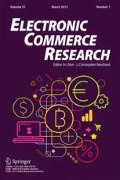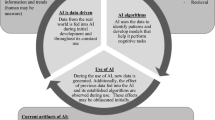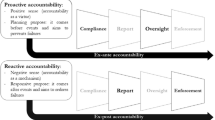Abstract
This article examines a number of contractual issues generated by the advent of intelligent agent applications. The aim of the study is to provide legal guidelines for developers of intelligent agent software by addressing the contractual difficulties associated with automated electronic transactions. The author investigates whether the requirements for a legally enforceable contract are satisfied by agent applications that operate independent of human supervision. Given the relative novelty of the technology and the paucity of case law in the area, the author's observations and conclusions are based on an analysis of first principles in contract law. Additionally, the author provides an analysis of whether proposed and enacted electronic commerce legislation in various jurisdictions is sufficient to cure the inherent deficiencies of traditional contract doctrine. Given the trend towards automated electronic commerce, the author concludes by highlighting the legal requirements that must be met in order to ensure the success of agent technology in the formation of online contracts.
Similar content being viewed by others
References
Allen, T. and R. Widdison. (1996). “Can Computers Make Contracts?” Harvard Journal of Law & Technology 9, 25–52.
Chavez, A. et al. (1997). “A Real-Life Experiment in Creating an Agent Marketplace.” In Proceedings of the Second International Conference on the Practical Application of Intelligent Agents and Multi-Agent Technology (PAAM'97), London, UK.
Chavez, A. and P. Maes. (1996). “Kasbah: An Agent Marketplace for Buying and Selling Goods.” In Proceedings of the First International Conference on the Practical Application of Intelligent Agents and Multi-Agent Technology (PAAM'96), London, UK.
Davies, L. (1997). “Contract Formation on the Internet: Shattering a Few Myths.” In L. Edwards and C. Waelde (eds.), Law & The Internet. Oxford: Hart Publishing, pp. 97–120. eBay. http://www.ebay.com.
Ecommerce. http://ecommerce.media.mit.edu/tete-a-tete/.
Fridman, G.H.L. (1994). The Law of Contract in Canada. 3rd Ed. Scarborough: Carswell.
Fried, C. (1981). Contract as Promise: A Theory of Contractual Obligation. Cambridge: Harvard University Press.
Fuller and Purdue. (1936). “The Reliance Interest in Contract Damages.” Yale Law Journal 46, 52–96.
Guttman, R. and P. Maes. (1998). “Cooperative vs. Competitive Multi-Agent Negotiations in Retail Electronic Commerce.” In M. Klusch and G. Weib (eds.), CIA 1998: Cooperative Information Agents II, Paris, France. London: Springer.
Guttman, R., A.G. Moukas, and P. Maes. (1998). “Agent-Mediated Electronic Commerce: A Survey.” The Knowledge Engineering Review 13(2), 147–159.
Hermans, B. (1996). “Intelligent Software Agents on the Internet: An Inventory of Currently Offered Functionality in the Information Society and a Prediction of (Near-)Future Developments,” Ph.D. Thesis, Tilburg University.
Jennings N.R. and M. Wooldridge. (1998). Agent Technology: Foundations, Applications and Markets. London: Springer.
Karnow, C. (1996). “Liability For Distributed Artificial Intelligences.” Berkeley Technology Law Journal 11, 147–204.
Kasbah. http://kasbah.media.mit.edu/.
Lelieveldt, S.L. (1997). “How To Regulate Electronic Cash: An Overview of Regulatory Issues and Strategies.” American University Law Review 46, 1163–1175.
J. Liu & N. Zhong (Eds.). (1999). Intelligent Agent Technology: Systems, Methodologies, and Tools. Singapore: World Scientific.
Maes, P. (1994). “Agents that Reduce Work and Information Overload.” Communications of the ACM 37(7), 30–40.
Minsky, M. (1994). “Will Robots Inherit the Earth?” Scientific American 271(4), 108.
Ovum Report, (1994). Intelligent Agents: The New Revolution in Software. London: Ovum Publications.
Panurach, P. (1996). “Money in Electronic Commerce: Digital Cash, Electronic Fund Transfer, and E-cash.” Communications of the ACM 39(6), 45–50.
Rafter, H.D. et al. (1997). “Streaming into the Future: Music and Video on the Internet.” In Patent, Copyrights, Trademarks, and Literary Property Course Handbook Series. New York: Practising Law Institute.
Reynolds, F.M.B. (1996). Bowstead & Reynolds on Agency. 16th Ed. London: Sweet and Maxwell, p. 6.
Rosenschein, J.S. and G. Zlotkin. (1994). Rules of Encounter: Designing Conventions for Automated Negotiation Among Computers. Cambridge, MA: MIT Press.
Runyon, K. and D. Stewart. (1987). Consumer Behaviour. 3rd Ed. New York: Merrill Publishing Co.
Russel, S. and P. Norvig. (1995). Artificial Intelligence: A Modern Approach. New York: Prentice-Hall.
Solum, L. (1992). “Legal Personhood For Artificial Intelligences.” North Carolina Law Review 70, 1231–1287.
Starke, J.G., N.C. Seddon, and M.P. Ellinghaus (eds.). (1992). Cheshire and Fifoot's Law of Contract. 6th Australian Ed. Sydney: Butterworths.
Terpsidis, I. et al. (1997). “The Potential of Electronic Commerce in Re-Engineering Consumer-Retail Relationships Through Intelligent Agents.” In J.-Y. Roger, B. Stanford-Smith, and P. Kidd (eds.), Advances in Information Technologies: The Business Challenge. Burke, VA: IOS Press.
Waddams, S.M. (1993). The Law of Contracts, 3rd Ed., Canada Law Book, Toronto.
White, J.E. (1997). “Mobile Agents.” In J.M. Bradshaw (ed.), Software Agents. Cambridge, MA: MIT Press.
Electronic Transactions Act. (1999). Online: Windows on the Law, Australia Attorney General's Department, http://scaleplus.law.gov.au/html/pastact/3/3328/top.htm
Electronic Transactions Act. (1998). (Enacted July 1998). Online: Government of Singapore, http://www. cca.gov.sg/eta/index.html
Model Law. (1997). Model Law on Electronic Commerce, GA Res. 51/162, UN GAOR, 51st Sess., UN Doc. A/51/628, at IA6. Online: UNCITRAL, http://www.un.or.at/uncitral/englishtexts/ electcom/ml-ec.htm
UCC2B. (1998). Uniform Commercial Code-2B (March 10, 1998 Draft). Online: National Conference of Commissioners of Uniform State Laws, http://www.law.upenn.edu/library/ulc/ucc2/2b398.htm
UCITA. (1999). Uniform Computer Information Transactions Act (draft 7 April 1999). Online: Uniform Law Commissioners, http://www.law.upenn.edu/library/ulc/ucita/citam99.htm
UECA. (1999). Uniform Electronic Commerce Act (draft August 1999). Online: Uniform Law Conference of Canada, http://www.law.ualberta.ca/alri/ulc/current/euecafa.htm
UETA. (1999). Uniform Electronic Transactions Act (draft approved at July 1999 annual conference). Online: National Conference of Commissioners of Uniform State Laws, http://www.law.upenn.edu/ bll/ulc/uecicta/uetast84.htm
Author information
Authors and Affiliations
Rights and permissions
About this article
Cite this article
Kerr, I.R. Ensuring the Success of Contract Formation in Agent-Mediated Electronic Commerce. Electronic Commerce Research 1, 183–202 (2001). https://doi.org/10.1023/A:1011587932113
Issue Date:
DOI: https://doi.org/10.1023/A:1011587932113




